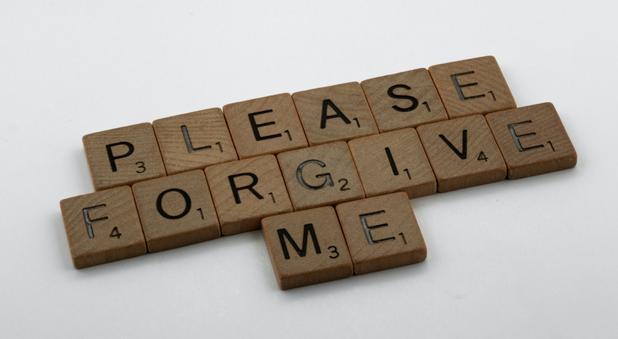I didn’t answer when my friend called the other day. I wasn’t ready to hear her apology. I was still angry and in a strange way I was prepared to stay that way. While I was really missing the fun we shared, angry me had set in. Afterall, the pain I was feeling meant I was justified to stay angry… didn’t it? I think I felt she deserved something back, some personal toll for what she had done to hurt me.
What is that, when we feel justified in our anger and motivated in maintaining our grudge?
That is unforgiveness, and it’s not fun.
For a while, sitting in unforgiveness may give us a strange satisfaction, a rumbling and uneasy sense of self-righteousness. I have felt it in my own life, and I have watched it cloud other people’s lives.
Sadly, over time, unforgiveness can become a personal burden. It may cause a bitter and hardened heart. It can be deeply distracting, holding us back and sucking the fun out of life. In a serious situation it can even lead to a path of revenge. Unresolved unforgiveness can break hearts, marriages, friendships, families and even split whole communities.
Forgiveness changes everything
A leading academic in this space, Professor Everett L. Worthington, notes that “forgiveness does place an additional burden on the person who is a victim, but holding onto grudges imposes physical, mental, relational, and perhaps spiritual costs that far outweigh the cost of forgiving”.
In Australia, forgiveness may be even the key to moving forward as a multicultural nation. Commentary on Australia Day just last week raised the issue of forgiveness. Christian Indigenous leader, Pastor James Dargin from the Illawarra, spoke thoughtfully into the topic, saying that on January 26 his children say to him, “Happy Invasion Day, Dad”, and he responds with “Happy Unity Day”. Why? Because the harsh experiences of abuse, pain and anger, followed years later by coming to faith, have taught him that forgiveness is the answer.
“I gave my heart to the Lord [and] he changed my heart,” Pastor Dargin said. “He forgave me. He died on the cross for me. So now, I have forgiven, ’cause it sets me free.”
Perhaps, like me, you have stood in awe of Danny and Leila Abdallah and Bridget Sakr as they forgave the driver who killed four of their precious children while they were on an afternoon walk to get ice cream on February 1, three years ago.
The Abdallahs’ demonstration of forgiveness, led by their deep faith, flowed into their family and their community. Their example of living out of forgiveness echoed across Australia and the world and, I think, inspired many to follow their lead.
We are forgiven
As Christ’s followers we may hope that we have a head start on forgiveness – after all, it is the main saving result of Jesus’ death on our behalf, and how he lived while on earth. The forgiveness that Jesus showed us should put us on our knees in humility before him, but it’s the next step that may be harder for us: the step of forgiving other people, no matter what they have done. This is, after all, what Jesus called us to do:
“For if you forgive other people when they sin against you, your heavenly Father will also forgive you”(Matthew 6:14).
This year’s i4give Day on February 1 kicks off a week of forgiveness activities to remind Australians again of the need to forgive. The i4give Foundation, beginning with Danny and Leila’s example, was formed to share the freedom found in forgiveness. It reminds us that forgiveness is key to living alongside and working with others, in every area of our lives.
The theme of i4give week this year is “keep 4giving” – recognising the ongoing need to forgive in big and small ways every day, at work, at play and at home.
Please join i4give in putting forgiveness on your personal and professional agendas this week. You can also register with us www.i4give.com and receive a package of materials. Or consider joining us at the i4give Festival this Saturday, February 4, at Prince Alfred Park in Parramatta.
Forgiveness is a choice that affects us all. While it is hard, evidence shows that it comes with significant benefits. Dig deep and forgive again. It will be worth it.
Dr Jen George is a volunteer with the i4give Foundation and attends King’s Community Church – a congregation based at The King’s School in North Parramatta.






















